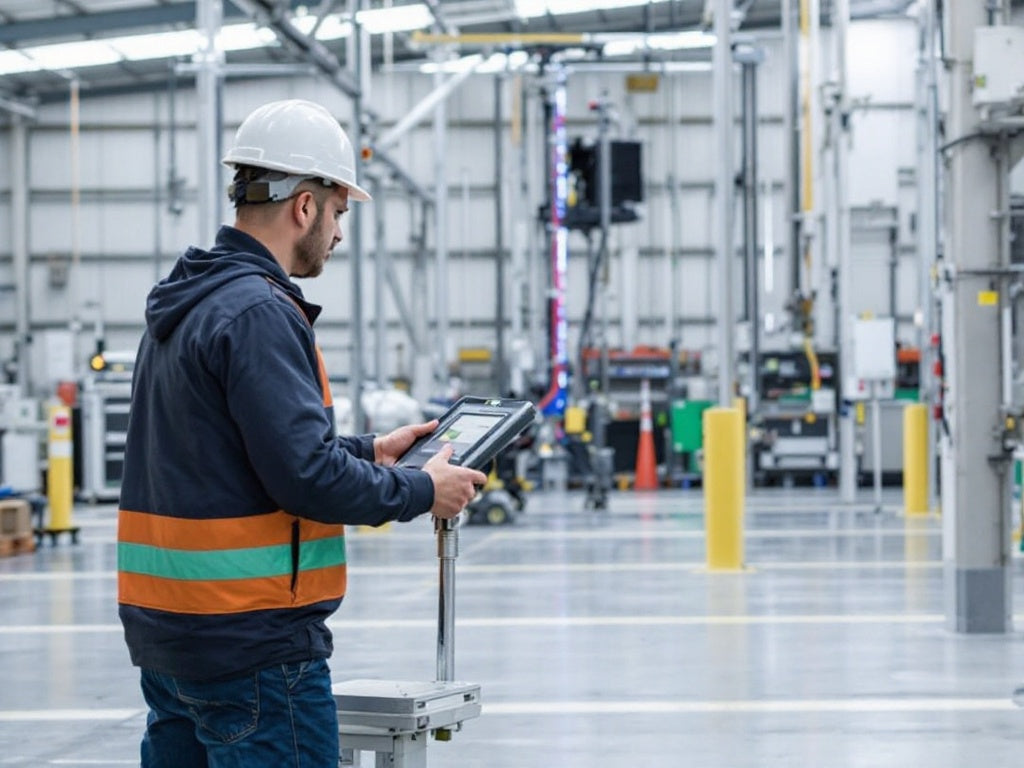
Why Your Digital Scale Readings May Fluctuate (And How to Fix It)
In industrial weighing, accuracy isn’t just a preference—it’s a necessity. Whether you’re managing livestock, inventory, or precise laboratory measurements, inconsistent scale readings can disrupt operations and lead to costly errors. Let’s explore the key factors affecting scale accuracy and the solutions to maintain reliable performance.
Key Takeaways
- Regular maintenance is essential for consistent accuracy.
- Environmental factors play a significant role in scale performance.
- Proper installation is fundamental to reliable readings.
- High-quality equipment minimizes risks.
- Professional support ensures long-term efficiency.
Primary Causes of Scale Inaccuracy
1. Environmental Factors
External conditions can interfere with accuracy, including:
- Temperature fluctuations.
- Air currents from HVAC systems.
- Vibrations from nearby machinery.
- Electromagnetic interference.
Pro Tip: Install draft shields or anti-vibration platforms in sensitive weighing areas to mitigate these factors.
2. Setup and Installation Issues
Improper installation can significantly impact scale performance:
- Uneven mounting surfaces.
- Poor load distribution.
- Improper leveling.
- Unstable foundations.
Best Practice: Use built-in level indicators and adjustable feet for proper positioning.
3. Maintenance-Related Problems
Neglecting maintenance can lead to:
- Calibration drift.
- Accumulated debris.
- Worn components.
- Moisture damage.
Solution Focus: Implement a regular maintenance schedule to keep your scales in top condition.
The Hidden Costs of Inaccurate Weighing
Inaccuracy in scale readings can have far-reaching implications, such as:
- Lost productivity from repeated measurements.
- Inventory discrepancies leading to financial losses.
- Compliance risks with industry regulations.
- Increased operational costs due to inefficiencies.
- Customer dissatisfaction from unmet expectations.
Technical Considerations for Optimal Accuracy
1. Power and Electronics
Unstable power supplies or electronic interference can cause inaccuracies. Key issues include:
- Battery degradation.
- Surge damage.
- Component failure.
Key Solution: Use power conditioners and surge protection to stabilize the power supply.
2. Environmental Protection
Different environments demand specialized scales:
- Washdown areas: Use IP65-rated scales.
- Dusty environments: Opt for sealed systems.
- Moisture-prone locations: Select corrosion-resistant materials.
- Temperature-controlled spaces: Use temperature-compensated load cells.
Preventive Measures to Maintain Accuracy
1. Daily Best Practices
- Check level indicators before use.
- Regularly clean weighing surfaces.
- Monitor power supply stability.
- Keep detailed maintenance logs.
- Train operators on proper usage techniques.
2. Long-Term Maintenance
- Schedule periodic calibrations.
- Inspect load cells regularly.
- Update scale software as needed.
- Track performance trends over time.
- Plan preventive maintenance to avoid unexpected issues.
Choosing the Right Scale for Your Needs
When selecting a scale, consider:
- The operating environment.
- Required accuracy levels.
- Frequency of usage.
- Load capacity requirements.
- Industry-specific needs.
Why Choose Liberty Scales?
- NTEP-certified options for regulated weighing.
- USA-made quality ensures durability.
- Free shipping across the continental US.
- 24/7 customer support for peace of mind.
- Expert technical guidance tailored to your operations.
Next Steps for Ensuring Accuracy
1. Assess Your Current Setup:
- Is the scale properly installed?
- Are environmental factors under control?
- Is the maintenance schedule sufficient?
2. Consider Upgrades:
- Could newer technology improve efficiency?
- Are your scales suitable for your requirements?
- Would additional features enhance accuracy?
3. Implement Best Practices:
- Develop standard operating procedures.
- Train staff on correct usage.
- Document all maintenance activities.
When to Seek Professional Assistance
Professional help is recommended for:
- Persistent accuracy issues.
- Post-relocation setup.
- Regular calibration needs.
- Upgrading to newer scales.
- Ensuring compliance with industry standards.
Need Expert Guidance?
At Liberty Scales, we specialize in delivering tailored weighing solutions for diverse industries. From helping you select the perfect scale to maintaining its peak performance, our team ensures that your operations meet the highest standards of accuracy and reliability.

